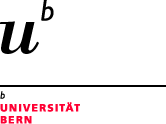Interfakultäre Koordinationsstelle für Allgemeine Ökologie (IKAÖ) |

Forschungsfeld BNE
Information on Research Project, „Elementary School Education for Sustainable Development“
The principle of sustainable development is a major item on political agendas worldwide. But how can individuals be empowered to participate? This is the question addressed by the research project, "Education for Sustainable Development: a didactic concept, and its use in the classroom," of the Interdisciplinary Center for General Ecology, IKAÖ, and of the Institute of Education of the University of Bern
Sustainable development is a major item on national and international political agendas. Sustainability seeks „to meet the needs and aspirations of the present without compromising the ability of future generations to meet their own. […] sustainable development requires meeting the basic needs of all and extending to all the opportunity to fulfil their aspirations for a better life.“ (World Commission on Environment and Development, 1987, 27). It falls to society to create and improve the conditions necessary for sustainable development. The greatest possible number of people should be able to participate in the actual design of sustainable development policies. This is a context in which the aspect of participation is of particular significance, raising the issue of how individuals can best participate. Both structural conditions and each individual’s skills need to change. Education can make a contribution by providing access to basic knowledge, skills and attitudes required in the active shaping of sustainable development. However, it would contradict the notion of sustainable development and modern education – and cannot therefore be the purpose of schools – to define the approach undertaken by children of a specific generation. This is why it is necessary to define schools’ precise task with regard to sustainable development, and how schools can prepare their students for this challenge.
Objective of the Research Project
This project funded by the Swiss National Science Foundation and the school of teacher education of the Canton of Berne (Pädagogische Hochschule Bern) had three objectives:
- Firstly, to determine the requirements for education for sustainable development, and to define them more clearly for the elementary school level. Which competencies should be promoted, what contents can be taught by what didactic principles?
- Next, to highlight interrelationships with other fields of teaching, such as environmental education, global learning, intercultural education, as well as objectives and content.
- Finally, the new concept is to be used in the classroom and evaluated.
Arriving at a didactic concept
First the project team formulated the objectives, didactic principles and requirements of education for sustainable development in the context of a serious analysis, combining the United Nations’ regulative notion of „sustainable development” with a theoretical didactic background. Existing didactic concepts from different pedagogic areas had been evaluated and synthesised with our objectives and didactic principles. The result of this synthesis was a draft didactic concept of education for sustainable development. It has been validated and further refined in workshops by expert teachers in environmental/humanities/general studies (the field termed Sachunterricht in Switzerland and in Germany).
The refined didactic concept was then applied by elementary school teachers. They designed teaching units, based on the didactic concept and proceeded to teach their classes accordingly. Workshops have been set up to provide individual monitoring of and support to teachers by the project team for the duration of the project. Not only did the teachers apply the concept in their practical work, together with the researchers they also generated insights into elementary school education for sustainable development.
The teaching units have been submitted to a formative and summative evaluation to find out whether the didactic concept was a success. Concerning this question, the teachers and the pupils, who had been involved in the research project, were investigated. The results of the two investigations are available (Künzli David, 2007 and Bertschy, 2007).
Once the evaluation process was completed, the didactic concept for education for sustainable development was refined once more prior to its publication (Künzli & Bertschy, 2008).
Selected Publications from the project
- Bertschy, F. (2007). Vernetztes Denken in einer Bildung für eine nachhaltige Entwicklung: Interventionsstudie zur Förderung vernetzten Denkens bei Schülerinnen und Schülern der 1. und 2. Primarschulstufe. Dissertation bei Prof. Walter Herzog, Institut für Erziehungswissenschaft. Universität Bern (Typoskript).
- Bertschy, F., Gingins, F., Künzli, Ch., Di Giulio, A., Kaufmann-Hayoz, R. (2007). Bildung für eine Nachhaltige Entwicklung in der Grundschule. Schlussbericht zum Expertenmandat der EDK: "Nachhaltige Entwicklung in der Grundschulausbildung – Begriffsklärung und Adaption". Verfügbar unter: http://www.edk.ch/PDF_Downloads/BNE/
BNE_Schlussbericht_2007_d.pdf - Campana, S. (2005). Perspektivenwechsel. Zur Förderung des sozialen Verstehens durch Bildung für eine nachhaltige Entwicklung. Lizentiatsarbeit. Institut für Erziehungswissenschaft der Universität Bern, Abteilung Pädagogische Psychologie. Bern.
- Herzog, W., Künzli David, Ch. (2007). Nachhaltigkeit in der Erziehungswissenschaft. Schlaglichter auf einen unabgeschlossenen Diskurs. In: Schweizerische Akademie der Geistes- und Sozialwissenschaften SAGW (2007), Nachhaltigkeitsforschung – Perspektiven der Sozial- und Geisteswissenschaften, Bern: SAGW. Académie suisse des sciences humaines et sociales ASSH (2007), Recherche dans le domaine du développement durable – perspectives des sciences sociales et humaines, Berne: ASSH. S. 281-304.
- Künzli David, Ch. (2007). Zukunft mitgestalten. Bildung für eine nachhaltige Entwicklung - Didaktisches Konzept und Umsetzung in der Grundschule. Bern, Stuttgart, Wien: Haupt.
For further information on the project (in German), please visit /forschung/bineu/
Translation from German:
Margret Powell-Joss
